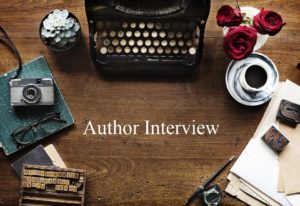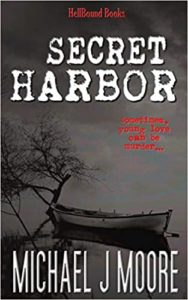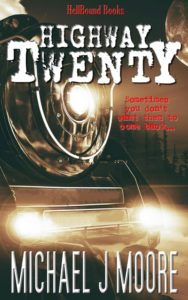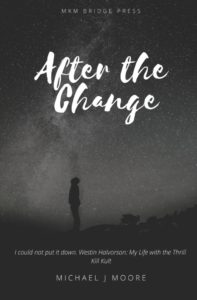An Interview with Michael J. Moore
 Social media can be a wonderful thing. Case in point: my ability to meet new authors via several author groups. While I tend to linger longer in the groups devoted to women’s fiction, I do meet authors of other genres from time to time. Michael J. Moore is one of those authors. His latest book, Secret Harbor, was published by Hellbound Books in July, and he is also the author of Highway Twenty and After the Change. Other work of his has appeared in Blood Moon Rising Magazine, The Horror Zine Magazine, Minutes Before Six, Schlock Magazine, and Siren’s Call, among others, and he received an Honorable Mention in the L. Ron Hubbard Writers of the Future contest. Michael tends to stick with young adult and horror genres; both “have been major influences on [him] from early on,” and they’re what he continues to gravitate toward. Like many writers who settle in nonwriting-related careers, he felt that something was missing from his day job. So he “picked up a pad of paper and started writing.” And here we are. I’m sure we’ll see more from Michael, and I’m grateful he took a bit of time to answer a few questions.
Social media can be a wonderful thing. Case in point: my ability to meet new authors via several author groups. While I tend to linger longer in the groups devoted to women’s fiction, I do meet authors of other genres from time to time. Michael J. Moore is one of those authors. His latest book, Secret Harbor, was published by Hellbound Books in July, and he is also the author of Highway Twenty and After the Change. Other work of his has appeared in Blood Moon Rising Magazine, The Horror Zine Magazine, Minutes Before Six, Schlock Magazine, and Siren’s Call, among others, and he received an Honorable Mention in the L. Ron Hubbard Writers of the Future contest. Michael tends to stick with young adult and horror genres; both “have been major influences on [him] from early on,” and they’re what he continues to gravitate toward. Like many writers who settle in nonwriting-related careers, he felt that something was missing from his day job. So he “picked up a pad of paper and started writing.” And here we are. I’m sure we’ll see more from Michael, and I’m grateful he took a bit of time to answer a few questions.
Christina: What can the horror genre do that other genres cannot?
Michael: The horror genre scares in a way that non-horror genres don’t seem able to. I personally like the horror genre because it puts you in touch with a part of your mind that you don’t ordinarily explore. There was a psychologist called Jung who believed that everyone had a part of the conscious which is their shadow (i.e., a dark version of yourself). Horror lets us explore that shadow side—the dark parts of the mind that we don’t usually acknowledge. In horror, we go somewhere dark and we enjoy, almost like going on a roller coaster. It’s fun to be scared for a while especially when you know the danger is not real.
Christina: You worked as a personal trainer. What lessons from that profession have you applied to your writing?
Michael: Wow! One hundred percent sales is what personal training is about, and I use that to market my books. Also, there is discipline involved in writing.
Christina: Do you still write your first draft in longhand, and if so, why? What does longhand do for your writing process that a computer can’t?
Michael: Sometimes I write longhand and sometimes right onto the computer. It all depends on my mood.
Christina: Several articles talk about the ego of a writer. Do you think a big ego helps or hurts a writer and why?
Michael: I don’t think it’s called an ego, but you have to be confident in your writing. Insecure writing is eager to spot and it’s annoying.
Christina: What types of scenes are the most difficult for you to write? Which are the easiest?
Michael: I’d have to say, there’s always the opening scene. It can be the hardest to get through because you want it to be good. Then the action scenes can be hard as well, and they excite you so much that you want to rush through them to get a resolution, but you can’t rush through them. I always go back over the action scenes and revise them as they are always too rushed the first time around.
Christina: How do you define literary success?
Michael: There’s the true answer and the answer we should give. For me, literary success would mean that my work has reached and thoroughly entertained a large audience. Often, authors equate getting a literary agent as success but for me, it’s about the fans.
Christina: If you had to do something differently as a child or teenager to become a better writer as an adult, what would you do?
Michael: I would have written more and paid closer attention to my English teachers. I had this one English teacher who would always get on my case and say you have to learn the rules before you could break them. He used to say Stephen King knew the rules, and that’s why he can break them.



Thanks to Michael for agreeing to this interview! If you know of an author who’d like to be featured in an interview (or you are an author who would like to be featured), feel free to leave a comment or email me via my contact page.
